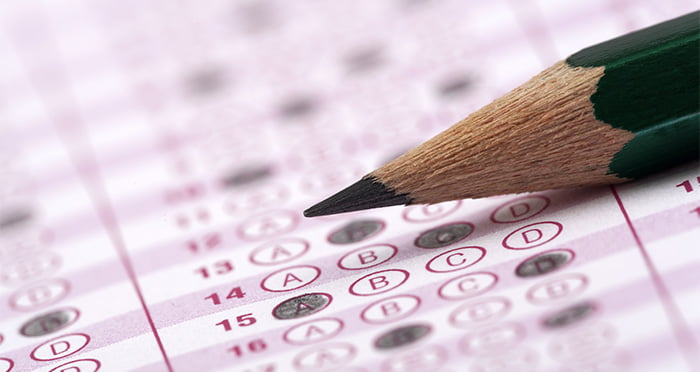A slight dip on last year, but disaster exam produces far-from-disaster results

The pass rate for 2017’s professional ethics exam has stayed steady since the Bar Standards Board (BSB) scrapped what could be considered the easiest part of the assessment: multiple-choice questions (MCQs). But this good news may do little to sooth the students who endured the first MCQ-free exam last year, which was so blighted by “clerical errors” the regulator was forced to delay releasing its results.
The two-hour professional ethics exam is one of three on the Bar Professional Training Course (BPTC). Aspiring barristers used to be asked to answer 20 MCQs and three short-answer questions (SAQs). Since 2017, the entire MCQ section has been removed and supplemented by three further SAQs.
MCQs can be navigated with a bit of luck and educated guessing in a way written answers can’t. Yet, there’s been no sharp dip in marks for the first post-MCQ ethics exam.
Of the 1,589 students who sat the exam in spring 2017, 57.6% passed. This is on the low side compared to the spring before (70.2%) but is in keeping with the 2015 (56.7%) and 2014 (59.6%) figures.
When you look at the summer exam sit, when about a quarter of assessments were taken, the 2017 results are a marked improvement on the year before. Here, the pass rate increased from 30.3% in 2016 to 56.6% in 2017. Do note, however, that 2016 seems to be a particular howler. If we exclude this and look at the two previous years — 67.5% and 56% respectively — 2017’s summer result seems pretty consistent.
Overall across both the spring and summer sits, 57% of ethics exams taken in 2017 were passed. For 2016, the figure is 63%.
So while the marks are far from the disaster some may have anticipated, that’s not to say the exam went without a hitch.
Readers may remember the anger than ensued when Legal Cheek exclusively revealed that the BSB had told law schools to hold off releasing the spring exam’s results after spotting “clerical errors”. The Legal Cheek readership made comments including: “Absolute disgrace”; “The BSB is not fit for purpose. An utter embarrassment to the profession”; and “Appalled by what has happened today.” In the end, 26 students saw their scores changed after a final check.
While this spring exam was a particularly low moment for the regulator, the BSB’s exam report reveals the chief examiner raised a concern about a particular marker during the summer sit. This was about “their relatively harsh marking”. The report continues:
“The board consulted the second marking of this marker’s scripts. It was noted that 18 of their scripts (i.e. where they were the first marker) were second marked. Out of those, as a result of the second marking process, 15 saw an agreed increase in marks, for two there was agreement not to change the mark, and in one instance there was agreement that the mark should be lower than the first mark. Where marks had increased there was a variance of between 0.5 and 2.5 marks.”
The BPTC ethics exam has been a thorn in the side of the regulator for years. In 2015, Legal Cheek reported that hundreds of aspiring barristers unexpectedly failed the paper due to a series of “ambiguous” short answer questions. In 2013, BPTC students were left stunned after discovering that exam questions had been drawn from a recent mock paper, giving some students an unfair advantage.